Scientific Sessions
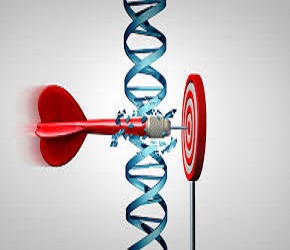
Track-01: Novel Developments in Drug Delivery System
Recent developments in drug delivery systems are revolutionizing healthcare. Innovations include nanotechnology-based carriers for targeted drug delivery, implantable devices for long-term medication release, and personalized drug delivery tailored to an individual's unique needs. Advanced oral and inhaled drug delivery methods enhance bioavailability and patient convenience, while gene and RNA therapies are delivered using specialized systems.

Track-02: Pharmaceutical Chemistry
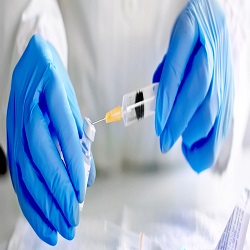
Track-03: COVID-19 Vaccines and Treatments
The COVID-19 pandemic ushered in an era of remarkable scientific achievement. Rapid vaccine development, notably with mRNA technology, led to global vaccination campaigns. Ongoing research monitors vaccine variants and the necessity of booster shots. Meanwhile, the quest for therapeutic antiviral medications, such as monoclonal antibodies and antiviral agents, continues. Beyond science, efforts target vaccine hesitancy and equitable distribution.
Track-04: Pharmaceutics
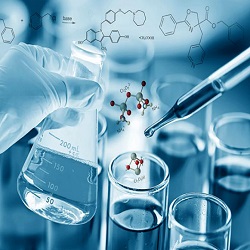
Track-05: Pharmacology
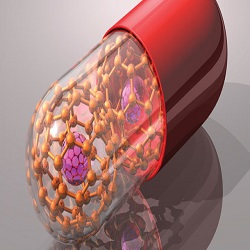
Track-06: Nanomedicine and Nanotechnology
Nanomedicine and Nanotechnology involve the application of nanoscale materials and devices in the field of medicine. This interdisciplinary field explores the use of nanoscale structures, such as nanoparticles, nanocarriers, and nanodevices, for diagnostic, therapeutic, and preventive purposes in healthcare. It leverages unique properties at the nanoscale to enhance drug delivery, imaging, and diagnostics, enabling more targeted and efficient treatments.
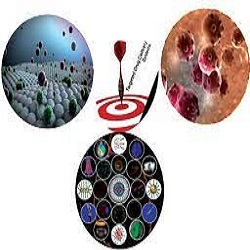
Track-07: Biologic and Biosimilars
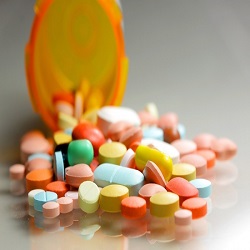
Track-08: Pharmaceutical Microbiology and Biotechnology

Track-09: Pharmaceutical Formulations

Track-10: Clinical Research and Clinical Trials
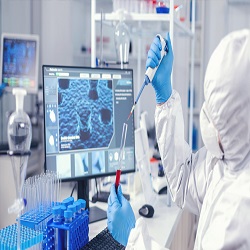
Track-11: Pharmacognosy and Phytochemistry

Track-12: Pharmacovigilance and Drug Safety

Track-13: Vaccine Design and Drug Delivery Technology
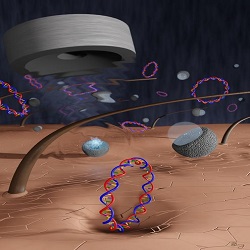
Track-14: Clinical Pharmacy
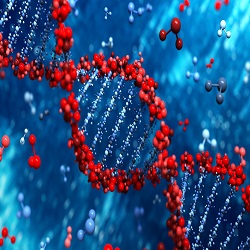
Track-15: Drug Discovery and Drug Design
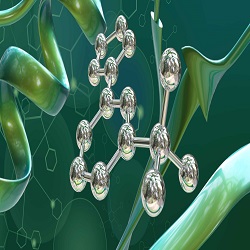
Track-16: Drug Formulation and Analytical Techniques
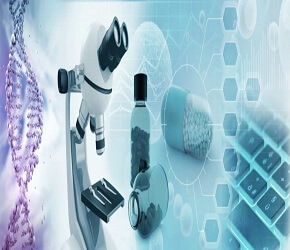
Track-17: Pharmaceutical Sciences
Pharmaceutical Sciences drive innovation in healthcare, blending chemistry, biology, and technology to create life-saving medications. This dynamic field pioneers drug discovery, development, and delivery, ensuring safer, more effective treatments. Pharmaceutical scientists work on the cutting edge, transforming groundbreaking research into tangible health benefits. With a focus on patient well-being, they improve quality of life and combat diseases worldwide. Pursuing a career in pharmaceutical sciences offers the opportunity to make a meaningful impact, contributing to the advancement of medicine and the future of global health. Embrace this rewarding field and be part of the journey to better health for all.

Track-18: Biopharmaceutics
Unlocking the secrets of medicine's effectiveness lies at the heart of biopharmaceutics. Dive into a world where science meets innovation, where each discovery brings us closer to personalized healthcare solutions. Biopharmaceutics delves into the intricate relationship between drugs and the human body, exploring how formulations, delivery methods, and molecular structures impact therapeutic outcomes. From pioneering drug delivery systems to revolutionary biotechnological advancements, every breakthrough reshapes the landscape of healthcare. Embrace the dynamic synergy of biology and pharmaceuticals, where cutting-edge research propels us towards safer, more effective treatments. Experience the fusion of science and hope in the realm of biopharmaceutics, where every discovery is a step towards a healthier tomorrow.
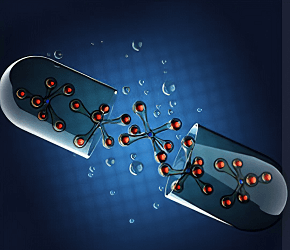
Track-19: Smart Drug Delivery Systems
Revolutionize medication with Smart Drug Delivery Systems (SDDS)! These cutting-edge marvels enhance treatment efficacy while minimizing side effects, ensuring targeted therapy. Imagine medication tailored precisely to your body's needs, administered with pinpoint accuracy. SDDS utilizes advanced technologies like nanotechnology, microfluidics, and biosensors, optimizing drug release for optimal results. Say goodbye to traditional, one-size-fits-all approaches; embrace personalized medicine with SDDS. From implantable devices to wearable patches, these systems offer unparalleled convenience and compliance, empowering patients and healthcare providers alike. Embrace the future of healthcare with Smart Drug Delivery Systems – where innovation meets precision, transforming lives one dose at a time.
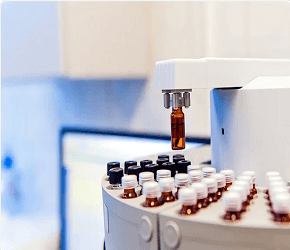
Track-20: Advances in Chromatography and Mass Spectrometry
Step into the realm of groundbreaking scientific exploration with Advances in Chromatography and Mass Spectrometry. Delve into the forefront of analytical chemistry, where precision meets innovation. Discover the intricacies of separating and identifying complex mixtures with unparalleled accuracy, revolutionizing industries from pharmaceuticals to environmental science. Explore the latest advancements in chromatographic techniques, unveiling new dimensions in separation science. Witness the power of mass spectrometry, unraveling molecular mysteries with unprecedented sensitivity and speed. Join the journey of discovery, where every breakthrough opens doors to new possibilities and shapes the future of science. Elevate your understanding, expand your horizons, with Advances in Chromatography and Mass Spectrometry.

Track-21: Pharmaceutical Regulatory Affairs
In the dynamic landscape of pharmaceuticals, Regulatory Affairs stands as the cornerstone of ensuring safety, efficacy, and compliance in the development and distribution of life-changing medications. Delving into this realm opens pathways to innovation while navigating intricate global regulations. From drug approval processes to post-market surveillance, Regulatory Affairs professionals are the guardians of public health, adeptly interpreting evolving policies to uphold industry standards. Their expertise fosters seamless collaboration between research, manufacturing, and governmental bodies, facilitating the journey from lab to market. In this pivotal role, they champion patient well-being, shaping a future where pharmaceutical advancements thrive within a framework of ethical responsibility and regulatory excellence.
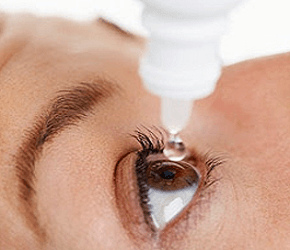
Track-22: Ophthalmic Drug Delivery
Discover the future of eye care with cutting-edge Ophthalmic Drug Delivery solutions. Revolutionizing treatment, these innovative methods ensure precise, targeted delivery of medication directly to the eye, enhancing efficacy while minimizing side effects. Say goodbye to traditional eye drops and hello to advanced formulations, such as sustained-release implants and nanoparticle technologies, offering prolonged therapeutic effects and improved patient compliance. Experience the power of personalized treatment regimens tailored to individual needs, optimizing outcomes for conditions like glaucoma, macular degeneration, and dry eye syndrome. Join the journey towards clearer vision and brighter tomorrows with Ophthalmic Drug Delivery advancements leading the way.
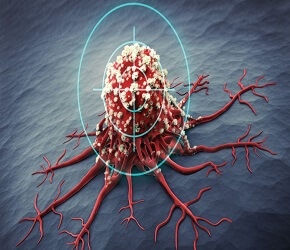
Track-23: Cancer Targeted Drug Delivery
Cancer targeted drug delivery represents a groundbreaking advancement in oncology, offering a precision approach to treatment. Unlike traditional therapies, which can affect healthy cells, this method focuses directly on cancerous cells, minimizing side effects and enhancing efficacy. Utilizing cutting-edge technologies like nanoparticles, monoclonal antibodies, and gene editing, targeted drug delivery ensures that medication is delivered precisely where it's needed most. This innovation not only improves patient outcomes but also holds the promise of transforming cancer care into a more personalized and effective field. Embrace the future of oncology with cancer targeted drug delivery—precision, effectiveness, and hope.
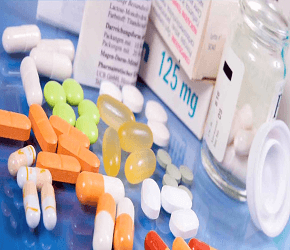
Track-24: Pharmacokinetics and Pharmacodynamics
Pharmacokinetics and Pharmacodynamics are the dynamic duo of drug science. Pharmacokinetics delves into how the body absorbs, distributes, metabolizes, and excretes a drug. It’s like the drug’s journey through the body. Meanwhile, Pharmacodynamics explores the drug’s effects on the body, detailing how it interacts with cellular receptors to produce therapeutic effects. Together, they illuminate the complete picture of a drug’s action, ensuring optimal dosing, efficacy, and safety. By understanding these processes, scientists and healthcare providers can better tailor treatments, enhancing patient outcomes and minimizing adverse effects. Dive into this fascinating world and unlock the secrets behind every medication!

Track-25: Pharmaceutical Analysis and Quality Assurance
Pharmaceutical Analysis and Quality Assurance are vital pillars in the pharmaceutical industry, ensuring the safety and efficacy of medications. By employing advanced analytical techniques, pharmaceutical analysis guarantees precise formulation and consistency in drug production. Quality assurance, on the other hand, meticulously monitors every stage of the manufacturing process, from raw materials to finished products, ensuring compliance with stringent regulatory standards. Together, they safeguard public health, instill consumer confidence, and uphold the integrity of pharmaceutical companies. Investing in these areas not only enhances product reliability but also accelerates the journey from laboratory to market, fostering innovation and trust in healthcare solutions.
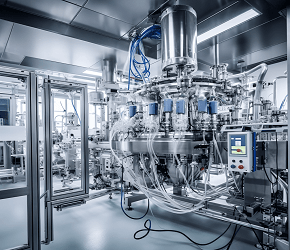
Track-26: Industrial and Physical Pharmacy
Industrial and Physical Pharmacy is at the heart of pharmaceutical innovation, combining cutting-edge science with practical application. This field ensures that medications are not only effective but also safe, stable, and manufacturable on a large scale. Specialists in this area work on drug formulation, optimizing delivery systems, and improving the bioavailability of active ingredients. By leveraging advanced technologies and rigorous quality control, Industrial and Physical Pharmacy plays a crucial role in bringing life-saving therapies from the lab to the marketplace, enhancing patient outcomes and revolutionizing modern medicine. Join this dynamic field and be at the forefront of healthcare advancements.

Track-27: Clinical and Medical Case Reports
Clinical and Medical Case Reports play a pivotal role in advancing healthcare. They provide detailed documentation of unique patient cases, offering insights into rare diseases, innovative treatments, and novel medical phenomena. These reports bridge the gap between clinical practice and research, fostering a deeper understanding of complex medical conditions. By sharing real-world clinical experiences, they enhance medical education and inform evidence-based practices. Whether you're a practitioner, researcher, or student, engaging with case reports enriches your knowledge and contributes to the collective effort of improving patient outcomes and healthcare delivery. Dive into the world of case reports to stay at the forefront of medical innovation.
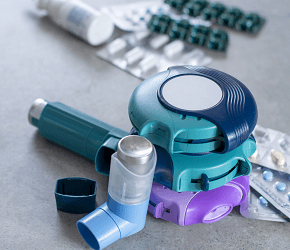
Track-28: Medical Devices for Drug Delivery
Discover the future of healthcare with cutting-edge medical devices for drug delivery. These innovative tools ensure precise, efficient, and pain-free administration of medications, revolutionizing patient care. From smart inhalers to advanced insulin pumps and implantable drug delivery systems, our technology enhances treatment effectiveness and patient compliance. Experience the seamless integration of digital health with personalized medicine, offering real-time monitoring and dosage adjustments. With a focus on safety and comfort, our medical devices promise to transform lives by providing reliable, targeted, and minimally invasive solutions for chronic and acute conditions. Embrace the next generation of healthcare with our state-of-the-art drug delivery systems.
Track-29: AI and Machine Learning in Pharma Industries
AI and Machine Learning are revolutionizing the pharma industry, accelerating drug discovery and development, optimizing clinical trials, and personalizing treatment plans. These advanced technologies analyze vast datasets to identify potential drug candidates faster than ever before, reducing time-to-market. Machine learning models predict patient responses, enhancing precision medicine and improving patient outcomes. AI-driven automation streamlines processes, cutting costs and increasing efficiency. In predictive maintenance and supply chain management, AI ensures smooth operations. By harnessing AI and Machine Learning, the pharma industry is poised to deliver innovative, effective treatments, transforming healthcare and offering hope to millions worldwide.
Mode of Presentation
Noveltics Group Contacts

Pharma Congress
NOVEMBER 18-19, 2024DUBAI, UAE